





attended the New York Military Academy and the Wharton School of Finance and Commerce at the University of Pennsylvania. Trump then took over his father’s real estate business, expanding it into other avenues, including reality television and book deals. If elected, Trump promises to keep reproductive rights as the domain of state law, having taken pride in the overturning of Roe v. Wade, as well as a total crackdown on illegal immigration. In addition, Trump has said he will staunchly defend the rights of Americans to own guns elected by reducing roadblocks to business growth and cutting taxes.
JD Vance is the vice presidential candidate for the Republican Party in the 2024 election. A native of Middletown, Ohio, where he attended Middletown High School, then served in the degrees in political science and philosophy, Vance attended Yale Law School.
bestselling memoir, "Hillbilly Elegy." Vance then began his political career in 2023 as a ReAs Trump’s vice presidential candidate, Vance has repeatedly professed his support for all of Trump’s policies
Vice President Kamala Harris is the 2024 Democratic presidential candidate with running-mate Minnesota Governor Tim Walz. She previously ran for president in 2020, before she became a U.S. Senator. Born to immigrant parents in Oakland, California, a Jamaican vice president. She earned her undergraduate from Howard University in Washington, D.C. and her law degree from the University of California, Hastings. later being elected attorney general of California. As vice president, she focused on a range of issues, such as women’s rights, abortion and contraceptives to combating climate change and advancing social justice. In her campaign for president, she aims to build on the progress made during the Biden administration, while addressing new issues facing Americans. She has championed enhancing economic opportunities, especially for the middle class, and LGBTQ+ rights.
Tim Walz currently serves as the governor of Minnesota. The former high school teacher served 24 years in the National Guard and served six terms in the U.S. House of Representafocused on protecting access to abortion, improving infrastructure in Minnesota and educasummer of 2020 following the death of George Floyd in Minneapolis.

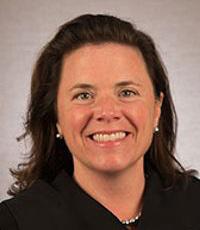
Megan Shanahan is a Supreme Court Justice candidate for the Republican Party. A native of Ohio, Shanahan attended Kent State University, where she studied political science before she earned a law degree from the University of Cincinnati. In 2015, she started Republican Party. She was characterized by tough rulings against child predators, up to and including the death penalty, and interpreting the law on its own merits, rather than relying on commonalities between cases or interjecting one’s own opinions. Shanahan is also anti-abortion and supports the state’s rights to determine the law according to their own statutes.
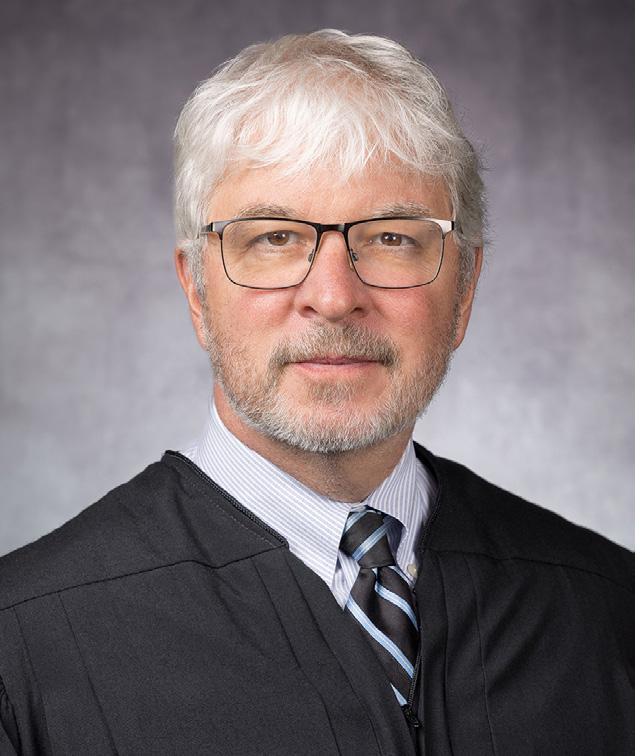
The incumbent justice of the Ohio Supreme Court Michael Donnelly, Democrat, is seeking reelection on a platform of judicial transparency and fairness in the judicial system. He began his legal career as a prosecutor in Cuyahoga County, earning his law degree from Cleveland State University College of Law. He was later a judge at the Cuyahoga County Court of Common Pleas before being elected to the Ohio Supreme Court in 2018. Throughout his career, he has earned a reputation for being a reform-minded justice, who wants to ensure equal justice in the judicial system. In 2023, he pushed back against the August election, arguing that the General Assembly didn’t have the power to schedule one.
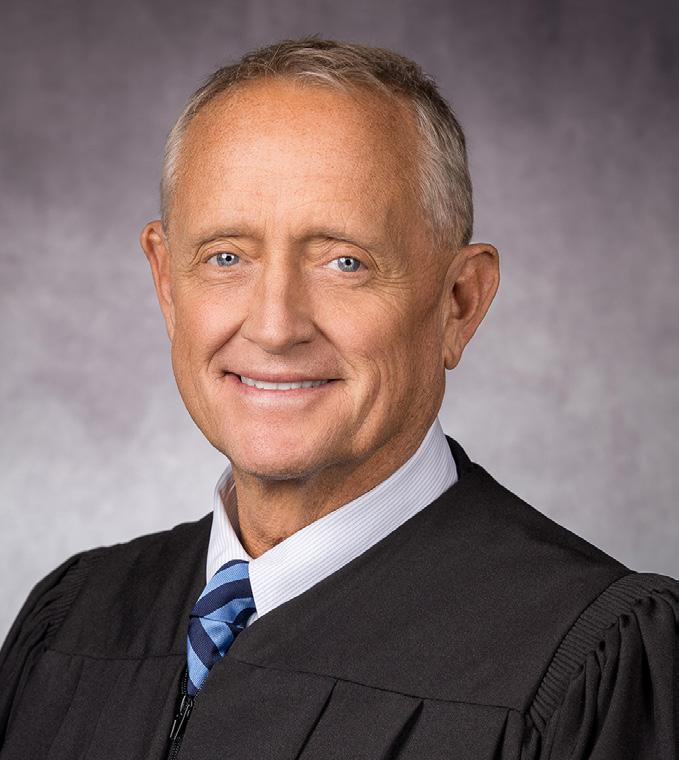
Incumbent Joseph Deters is currently a justice and running as a Republican, receiving an appointment for the position in 2023 by Governor Mike DeWine. In the past, the Ohio native served as Hamilton County prosecutor, where he held the position twice from 1992-1999 and 2005-2023. He was known for his tough-on-crime court in Ohio. He earned his law degree from the University of Cincinnati. He believes in a strict interpretation of the Constitution, and that it’s the judge’s job to interpret the law, not legislate from the bench.
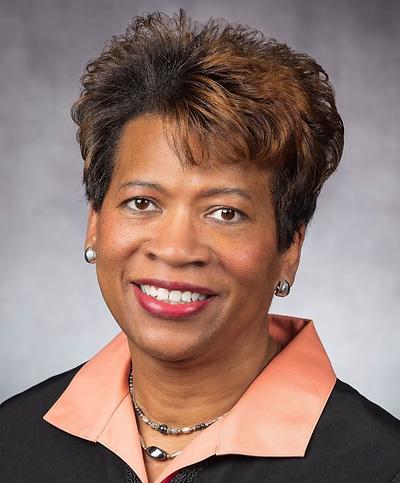
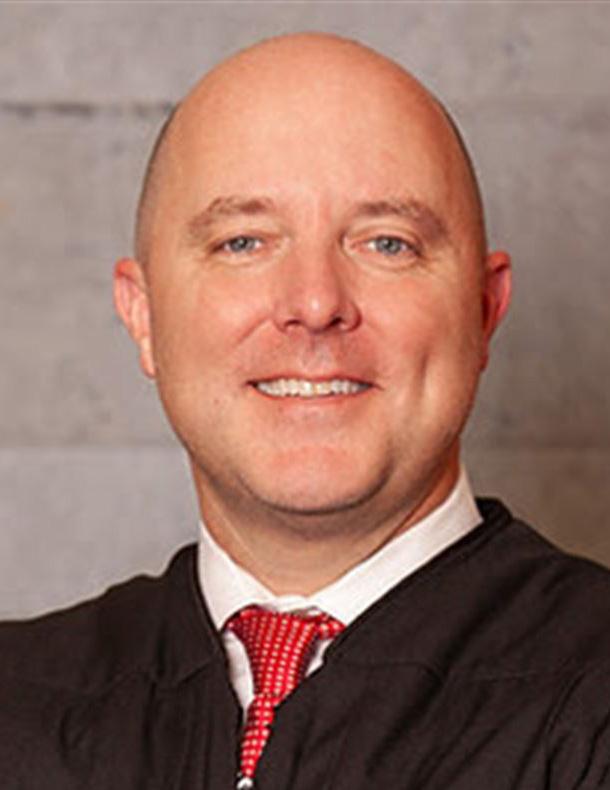
Daniel Hawkins, a Supreme Court Justice candidate for the Republican Party, is a native of Columbus, Ohio, who majored in criminal justice at Bowling Green State University and attained a JD at The Ohio State University’s Moritz College of Law. When his career as an assistant prosecutor began, Hawkins worked cases ranging from child abuse to homicides, including cases involving the death penalty. However, as his career progressed, Hawkins would focus on property and infrastructure cases, where he sentenced neglectful property owners, especially landlords. As a hopeful candidate for the position of Supreme Court Justice, Hawkins is focused on strictly applying the text of the law to all cases he faces, though he is not opposed to the idea of being able to have common sentencing for crimes.
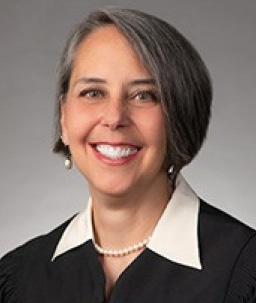
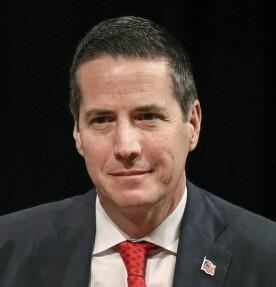
Bernie Moreno is a Trump-endorsed Republican candidate running for the Ohio U.S. Senate seat. Born in Colombia, Moreno immigrated to the U.S. when he was young and later built a successful career as a businessman and car salesman. He got a degree in business administration from the Universi-
Senate after Rob Portman, Republican, retired in 2022 but later dropped out, leading JD Vance to win the primary. Moreno is anti-abortion, supporting restrictions on abortions with limited exceptions. He is a supporter of 2nd Amendment rights and opposes further background, he supports a legal process of immigration while increasing stringent enforcement against illegal immigration. He supports free market policies and reducingskeptical of radical shifts, instead advocating for energy independence, including both renewable energy and fossil fuels.
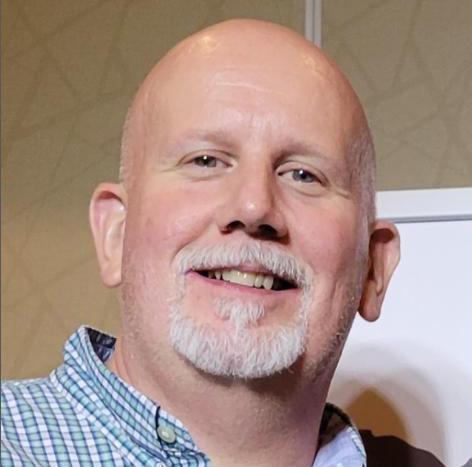
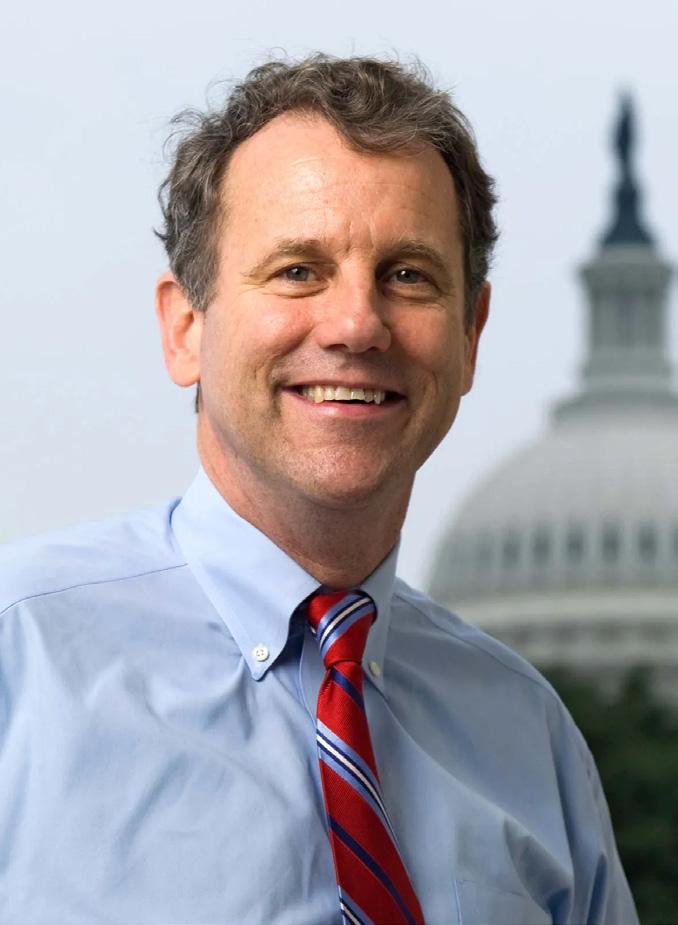
African-American woman on the Ohio Supreme Court. A Cleveland native, Stewart attended Beaumont School before majoring in music theory at the University of Cincinnati, and afterward began a career as a music teacher, before going back to school at the Cleveland State University’s Cleveland-Marshall College of Law. She then began new careers associated with law as a civil
his undergraduate studies at Yale University, where
earned a degree in Russian studies.
then studied public administration and education at The Ohio State University. His career began as the youngest person elected into the Ohio House of Representatives in 1975. In 2007, he was elected to the U.S. Senate and lathe worked to diminish the power of the North American Free Trade Agreement to give Ohio workers better deals for their work. If re-elected, Brown American workers by diminishing predatory free trade deals and advocating for workers’ rights.

VANESSA ENOCH
Vanessa Enoch is a Democrat running for U.S. representative in Ohio’s 8th District. She has an extensive background in business management, having owned a small business for 16 years in management consulting. She earned her undergraduate degree in criminal justice from The Ohio State University and her master of business administration from Xavier University. She later earned her doctor of philosophy degree (Ph.D) in public policy and social change from Union Institute and University. This marks opponent, Warren Davidson.
She is a strong advocate for reproductive rights, believing in safe and equal access to abortion. On guns, Enoch wants common-sense gun control safety measures such as universal background checks and banning “weapons of war” like high-capacity magazines and assault weapons. She believes in equal access to education and enhanced economic opportunities for lower and middle-class families. She is also a strong advocate for renewable energy.
vs.
WARREN DAVIDSON
Warren Davidson is the candidate for the Republican Party. A native of Sidney, Ohio, Davidson graduated from Sidney High School and served in the Army as an infantryman, where he eventually went to West Point and was elected as a representative in the 2016 election and is running again with promises of stopping illegal immigration with whatever measures necessary. He is sturdy in his support of anti-abortion policies, protection of the 2nd Amendment rights and a strong military.
state senatoR
GEORGE LANG
George Lang, Republican, is the incumbent and running for re-election to Ohio’s 4th District State Senate seat which oversees Oxford. Before he went into politics, he was a business owner and served as presbeing appointed to the Ohio House of Representatives in 2017. He also previously served as a West Chester Township Trustee before being elected to the Senate in 2020. As a senator, he is known for his pro-business stances, saying he wants to make Ohio “the most business-friendly state in America,” according to his website. He is also known for being anti-abortion with exceptions for the mother’s life, a supporter of 2nd Amendment rights, stronger enforcement of immigration laws and lower taxes.
vs.
TOM COOKE
Tom Cooke, from Long Island, New York, is the candidate for state senator for the Democratic Party. Cooke enlisted in the U.S. Army after high school, where he served for four years before using the GI Bill to attend St. John’s University in New York. There, he joined the ROTC program and eventually attained the rank of lieutenant colonel. He accumulated numerous accolades, including the Bronze Star medal. After retiring from military service, he settled in Oxford, Ohio, where he decided to run for State Senator. Cooke’s goals if elected include improved regulationcare along with general health care in Ohio.
DIANE MULLINS
Diane Mullins is the Republican candidate for Ohio’s 47th District State representative seat from Hamilton, Ohio. She attended Miami University’s Hamilton campus and is a pastor for the Calvary Church in Hamilton. Her candidacy in this race comes from defeating Republican incumbent Sara Carruthers in the primary with 53% of the vote. The other Republicans faced censure in the Ohio House in 2023 for supporting representative Jason Stephens as speaker of the house. The censure led to a decrease in party support for Carruthers and opened the way for Mullins in the primary. She received an endorsement from Ohio Value Voters. According to her website, she is “a the Old Testament. The website says the 2017 women’s march inspired her to run, saying, “Those women do not speak for me.” vs.
VANESSA CUMMINGS
Vanessa Cummings is the Democratic candidate for Ohio’s 47th District State representative seat. She got her undergraduate degree at the University of Alabama in political science and later attended Payne Theological Seminary. She is a pastor of Payne Chapel AME Church in Hamilton and business owner of Ms. V Consulting LLC. She has served on the Butler County Children Services Board and parking services administration for both Miami University and Columbus State Community College. Her platform aims to represent voices that have been diminished or silenced, saying she wants to represent Ohio citizens rather than her own political interests.
If elected, her priorities include decreasing unemployment in variousing livable wages for workers. She is adamantly against politicians deciding what is taught in school, saying parents should have more input into the education system. Cummings also right, and that reproductive decisions should be left to the woman and the doctor and mental health treatment should be a part of healthcare.
MELENA SIEBERT
Melena Siebert, a Republican from Xenia, Ohio, is a candidate running for the 12th District Court of Appeals in Ohio. The court serves as an intermediate appellate court in the state, reviewing decisions from the lower court to ensure the correct application of the law. Siebert received her bachelor’s and law degrees from the University of Cincinnati. She is known for her strict interpretation of the Constitution and judicial philosophy as a “proven conservative” candidate through working with a campaign website, “I believe judicial philosophy matters so much – without the proper judicial philosophy, judges too often fail to recognize and respect what their proper role in our society is.”
County CommissioneR seat 1
TAMARA SMALL
Tamara Small is a candidate for county commissioner for the Democratic Party. Originally from Tulsa, Oklahoma, Small moved to Butler County where she attended the Uni-

versity of Cincinnati and received her Ph.D. She later obtained a master’s degree in nursing at Indiana Wesleyan University. From there, Small resolved to use the skills she had learned to better the county as a whole. As a county commissioner, Small would be responsible for the general administrative tasks of the county’s government, including taxing and budgeting, being the authority of the county responsible for planning in general. Small hopes to prioritize planning for public safety and overall mental and physical welfare if she is elected to the position of county commissioner.
vs.
T.C. ROGERS
Incumbent T.C. Rogers, Republican, is running for re-election as Butler County Commissioner, having held the role since 2012. Commissioners make decisions that impact local governance, including overseeing the county’s budget, infrastructure, economic development and public safety. Rogers received a degree in business administration and marketing from the University of Cincinnati. He has been a business owner for more than 35 years and is a member of the Ohio-Kentucky-Indiana Regional Council of Governments. He is running on a platform that maintains a low cost of living and creates new economic opportunities.
County CommissioneR seat 2
CHANTEL RAGHU
A native of West Texas, Chantel Raghu moved to Ohio for veterinary school at the Ohio State University. After recieving her degree, she settled in Oxford, where she became involved in city council, eventually becoming the vice-mayor in 2021. In a challenge against the 17-year incumbent Donald Dixon, Raghu plans to
vs.
DONALD DIXON
Incumbent Donald Dixon, Republican, is known for his emphasis on tax dollar as he would his own,” according to the commissioner’s website. He has been on the commission since 2007 and also served on the board from 1982-86. He is focused on economic development in the region, public safety and investing in public infrastructure. He has also served on various committees including the 911 Planning Committee, the Energy Marketers of America Executive Committee, Public Defender Commission, the Transportation Improvement Board and the Visitors and Conference Bureau Committee.
MICHAEL GMOSER
Republican Michael Gmoser is running for re-election as Butler County’s prosecuting attorney, a position he has held since 2010. The prosecuting attorney is responsible for prosecuting criminal cases, advising law enforcement and representing the county in cases. Gmoser started as a trial attorney and assistant prosecuting attorney from 1974-1981. He considers himself a lifelong conservative and has maintained a successful trial for 37 years.
MARY SWAIN
Mary Swain is the Republican candidate for the clerk of the Court of Common Pleas. A lifelong native of
Butler County, Swain attended Madison High School and received a degree from Middletown Business College. Having already been appointed clerk of the Court of Common Pleas in 2011, Swain hopes to be elected to the position again this year. Swain would be responsible for maintaining the of the entire court. As a steadfast conservative, Swain wishes to redirectcial focuses, including the stringent management of records in an online system.
RICHARD JONES
Richard Jones, a Republican, is running for his sixth reelection as held since 2005. Jones is known locally and nationally for his toughon-crime stance and outspokenness against U.S. immigration policy. His talk on immigration has landed him appearances on the networks NewsMax and Fox News. He rose to national prominence in 2005 when he placed a sign outside his jail that read “Illegal Aliens Here” with an arrow pointing toward the jail. Shortly after, he put billboards across the county rallying against employers who hire undocumented immigrants, saying that hiring migrants for tough jobs isn’t a good way to introduce them toports Trump and has visited the border several times.
DANNY CRANK Danny Crank is the Republican candidate for county recorder. He’s from Hamilton, Ohio, and has been elected to the position of county recorder in every election since 2000. If reelected, Crank would continue to issue veterans’ IDs, record documents and provide copies of documents on request.
MICHAEL MCNAMARA
Michael McNamara is a Republican running for election as Butler County Treasurer, a position he was appointed to two years ago. The county treasurer is responsible forcluding tax collection, investments and management of taxpayer funds. McNamara went to Miami University for his undergraduate degree in political science and later earned his Master of Public Administration at Ohio University. He served in various duties for Butler County from 2010 to 2020 as chief deputy treasurer and development administrator. He then worked in Clermont County as the director of community and economic development until 2023, when he went back to Butler County after his treasurer appointment. According to the campaign website, “McNamara is a conservative and is pro-life, supports the 2nd Amendment, believes in limited government and strong businesses and healthy families.”
GREGORY WILKENS
Gregory Wilkins, the Republican candidate for county engineer, employed at the Butler County Engihe’s been elected and reelected as the county engineer. If reelected to his position, Wilkins will resume directing the maintenance of the 266 miles of roadway, 398 bridges and 927 culverts of Butler County.
County CoroneR
LISA MANNIX
Lisa Mannix, Republican, is run-
ning for reelection for county coroner, a position she has held since 2012. The county coroner is responsible for investigating deaths within the jurisdiction, primarily those with suspicious circumstances around them. Mannix earned her medical degree at the University of Cincinnati and completed her residency and fellowship at the Cleveland Clinic Foundation. Before she became coroner, she had a private medical practice specializing in neurology. Since she became corothan 3,000 deaths, with roughly a third related to overdose.
KEITH SPAETH
Keith Spaeth attended Badin High School before getting his undergrad from Purdue University and his law degree from the University of Dayton Law School. He worked at the legal elected as judge of the Court of Common Pleas in 1999. Spaeth’s tasks would include hearing cases mainly relating to domestic relations, civil disorders and juvenile disorders.
KELLY HELIE
Kelly Helie received her undergraduate degree from The Ohio State University in political science and earned her law degree from Capital University Law School. In the past, she has worked as an assistant prosecuting attorney in Delaware and Butler Counties. She later worked as the chief of the child and sexual assault division in the Butler County proseBar Council for the Ohio State Bar Association. Her focus in this election is ensuring those who utilize the legal system receive proper representation and judicial review.
J. GREGORY HOWARD
Originally from Kentucky, J. Gregory Howard attended the University of Kentucky where he received a business administration degree before attending the Salmon P. Chase College of Law at Northern Kentucky University. After moving to Ohio, Howard started his legal career with a private practice in Hamilton. He’s a member of the Ohio Bar Association and the Butler County Bar Association. As the judge, Howard would endeavor to reduce substance abuse amongst the public via a docket emphasizing treatments and accountability.
KEVIN MCDONOUGH Incumbent Kevin McDonough has been reelected to the position two times since he started in 2007. He received his bachelor’s degree in business administration from Xavier University and his Juris Doctorate from the University of Cincinnati College of Law. He specializes in civil litigation, including personal injury and wrongful death cases, municipal law, OVI/
COURTNEY CAPARELLA-
A native of Ohio, Courtney Caparella-Kraemer attended Miami University for her undergraduate degree before gaining her law degree from the Dayton School of Law. Caparella-Kraemer’s career began with the establishment of her own private law practice in West Chester, Ohio, known as CK Law. If elected to the position of judge of the Court of Common Pleas, Caparella-Kraemer will use her more than 20 years experience of private practice to help the court in addressing issues such as mental health and substance abuse, as well as ensuring that cases will be


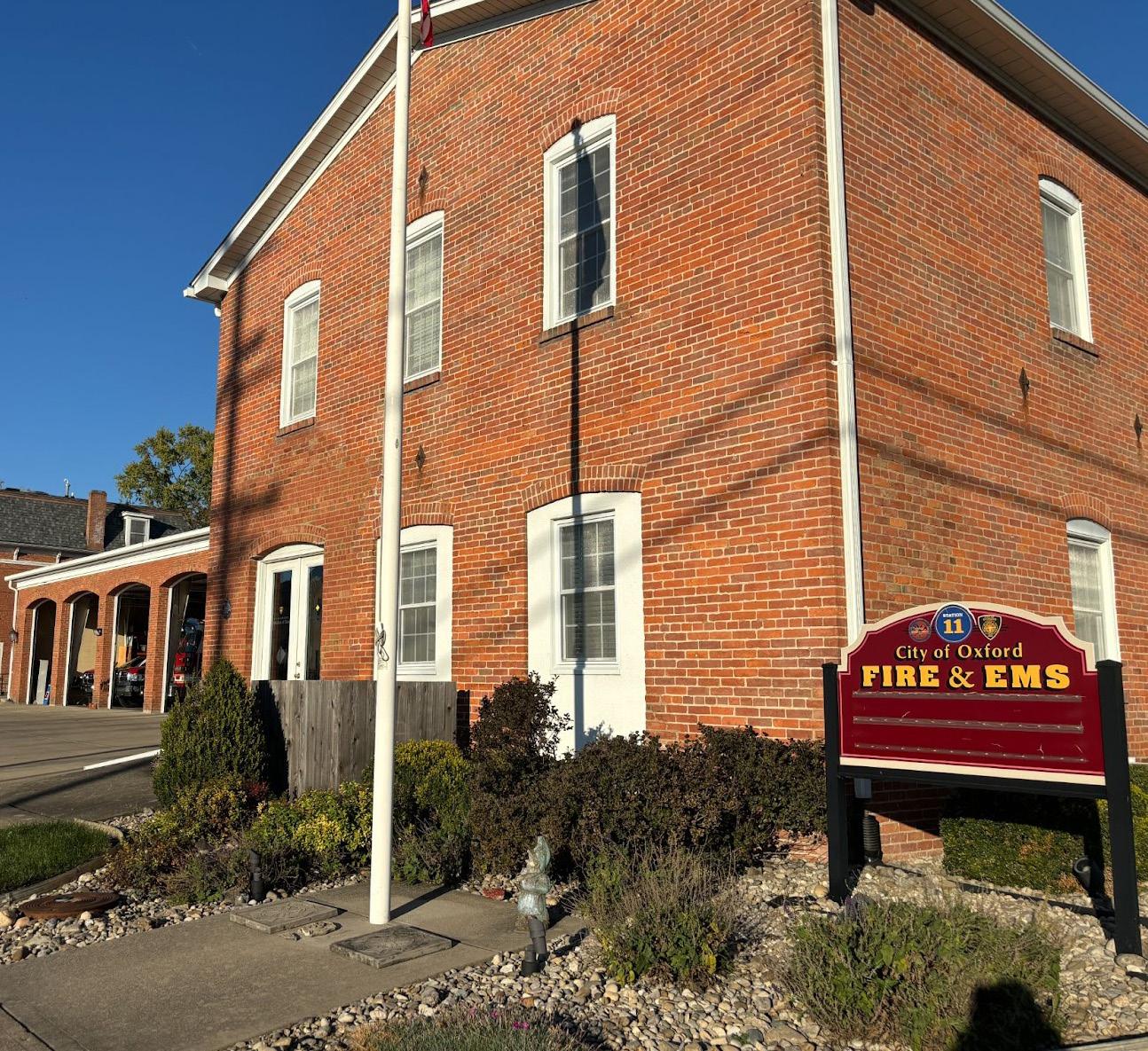
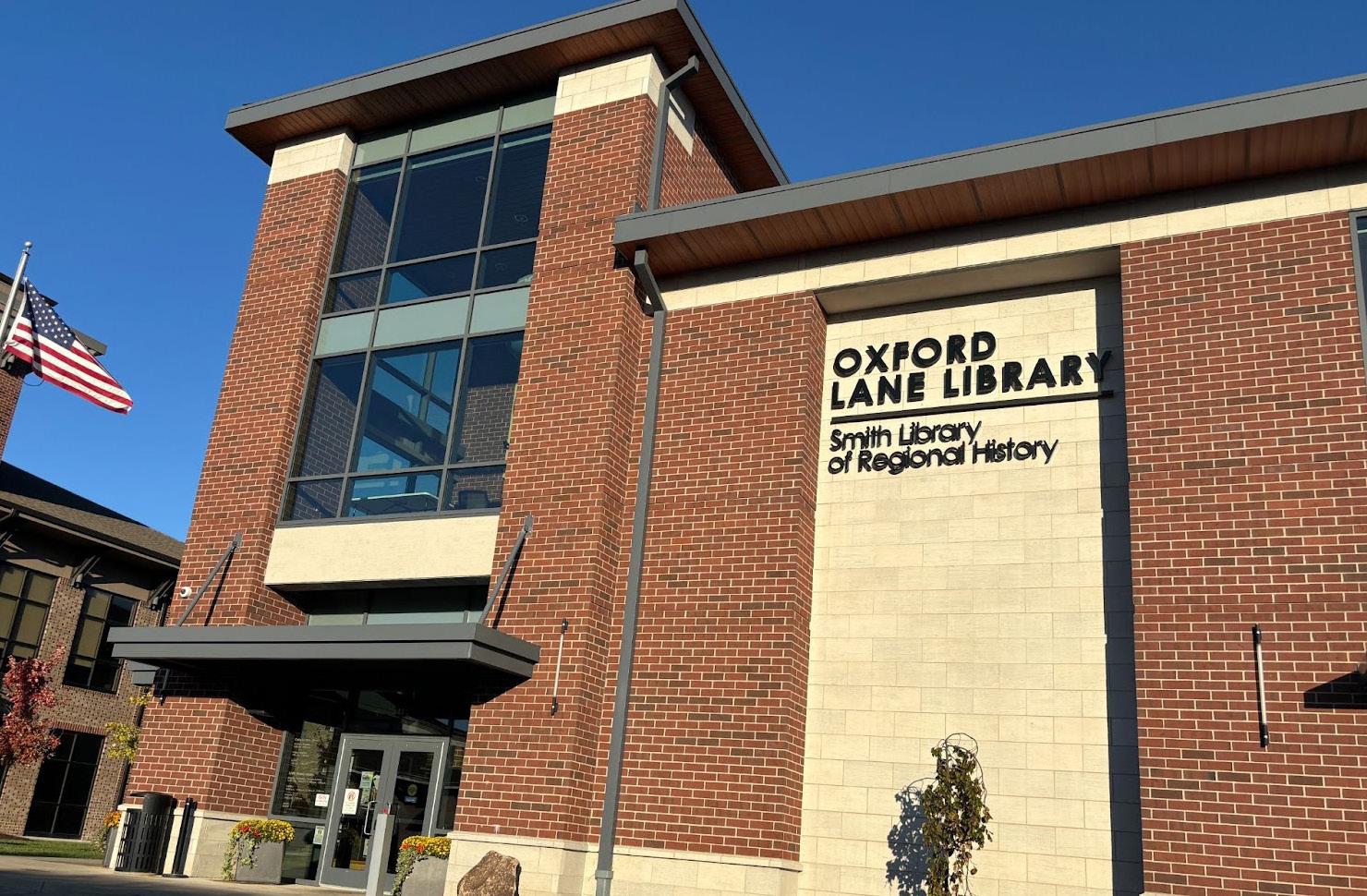

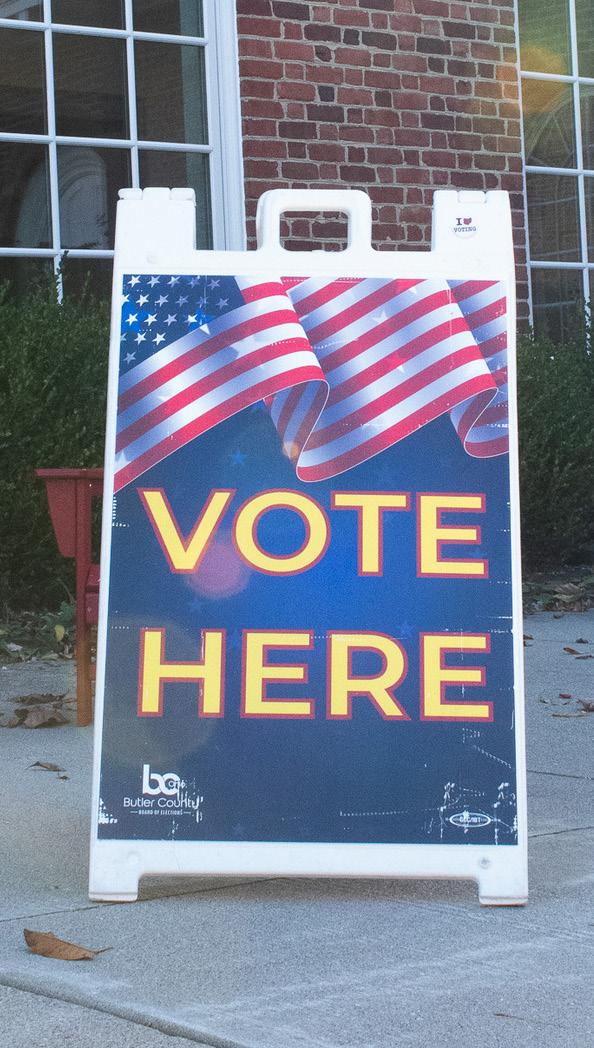



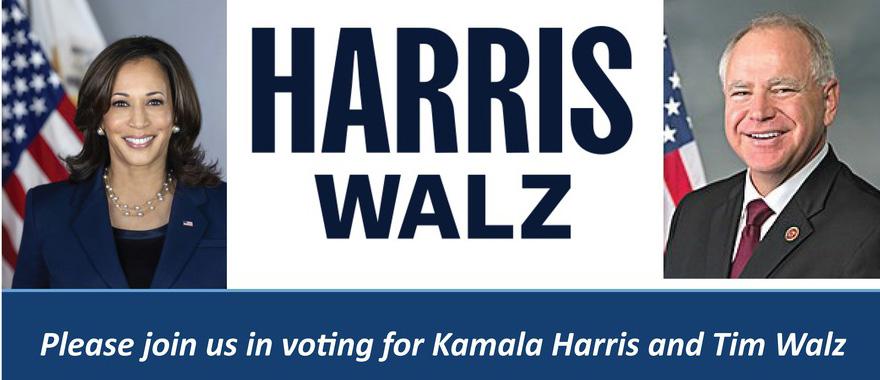

STELLA POWERS
ASST. CAMPUS & COMMUNITY AND ASST. CULTURE EDITOR
The November presidential election is nearly here. Miami University students may be voting early, sending in absentee ballots or preparing to go vote on election day. However, being on a college campus is not always convenient when it comes to voting.
Throughout election history, the term “disenfranchised” has been used to describe people without the right to vote. Often, it references people who are legally unable to vote, but it has since expanded to include people who face obstacles preventing their ability to vote.
Patrick Houlihan, president of the College Democrats of Ohio, president of the College Democrats at Miami University and Northwest Regional Chair of the Butler County Democratic party, described the word “disenfranchised” as a loaded term with
Houlihan started by discussing how Secretary of State Frank LaRose helped pass laws requiring photo ID to vote in Ohio. This can make it more for students who can’t drive or don’t
“Students face those issues all the time when it comes to voting,” Houlihan said. “Information is inaccessible, and there are organizations on campus that do their best to proliferate materials and information, but
GINA ROTH STAFF WRITER
it just doesn’t reach everybody, and there are students that will go and try to vote in Ohio and then be turned away because they don’t have an Ohio driver’s license.”
Houlihan said that while these regulations are presented under the guise of election integrity and protec-
if they are registered to vote, they should be able to.
He also touched on how the issues
dents, as well as why students should care about this election. He talked
tutional amendment that states it will ban gerrymandering in Ohio, which he said has some of the most corrupt maps in the nation.
“Having politicians draw their own maps and make districts that are favorable to them, rather than the will of the people, is directly against our democratic values and takes power out of the people’s hands,” Houlihan said.
Kevin Reuning, an associate professor in the political science department, said disenfranchised can also mean people who are restricted from access to voting in meaningful ways.
“Disenfranchised is, at a minimum, people who are not legally able to vote,” Reuning said. “It’s sometimes also then applied to people who might legally have the right to vote, but there are impediments.”
Reuning said that for students who are having a hard time getting
access to information on how to cast their vote, the Dean of Students has information available for them. He also said there are student resources, including Associated Student Government (ASG), on campus working to ensure students are educated.
“In the end, elections are the most direct way to have a voice in governance,” Reuning said.
Reuning said one of the most frequent obstacles preventing students from casting their votes is not realizing they had to be registered to vote in Oxford.
Madeline Irvin, a senior biochemistry major, is registered to vote in Illinois. She said she hasn’t faced any issues herself and that voting seems easily accessible on Miami’s campus, but she has heard stories of that not being the case.
While Irvin has not yet voted, she plans on sending in her mail-in ballot soon. Irvin said while it has been a fairly smooth process for her, getting
Irvin said. “I know there was a car parked in front of our mailbox, so we didn’t get mail for a week and didn’t even realize. So if we hadn’t realized, [then] the mail-in ballots probably wouldn’t have [been] picked up.”
Students can visit the Miami’s Libraries website for more resources and information about voting.
powers40@miamioh.edu
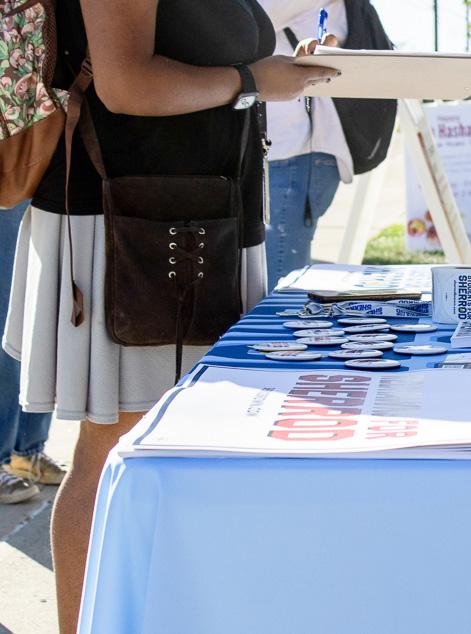
The upcoming election has seeped into the everyday lives of students, whether that’s seeing a political ad while watching TV or they’re walking to class and seeing yard signs. With many important issues both nationally and locally, it’s hard to escape politics. How are students navigating this election?
Politics in the classroom
Departments like social justice and women and gender studies host many discussion-based classes where politics are often brought up. Tori Coss, a senior zoology major,sion-heavy classes. Issues like body autonomy, sexism and domestic violence are all issues that can be brought up in these classes with political leanings. Stu-
dents taking social justice classes may have strong opinions on critical race economic struggles.
“We always try to move it back to current events,” Coss said, “[and] what’s going on in the world.”
Coss said her professors make sure to present the facts of the situation the class discusses so that people can be well-informed before they come to their own conclusions. When students say something incendiary, professors try to have a conversation about it.
“No one in those classes I’ve taken has ever just been immediately shut down,” Coss said. “There’s never been an instance where a professor’s like, “No, that’s wrong.’ They’ve all been like, ‘Well, let’s talk about it.’”
Dorian Void, a senior individualized studies and sociology major, said her professors who don’t teach political classes try to avoid discussion of
politics in their classes.
“I feel like in most classrooms, professors feel compelled to [not] talk politically,” Void said.
Gen Z and the election For many Miami students, this is they are eligible to vote. Brian Marshall, chair of the department of political science at Miami, said his students are concerned by current political issues.
“I think a lot of students paid attention to things like where the candidates stood,” Marshall said, “and particularly the Israeli-Palestinian
Marshall said many young voters are very opinionated when it comes to things like foreign policy and re-ence their vote, and that a student’s vote isn’t something that should be ignored.
“I think as close as this election is
going to be, that young people have a huge opportunity in front of them totion,” Marshall said. “And I hope they are because our young people are going to be the leaders of tomorrow and leaders of today and tomorrow, right?”
Zach Armes, a senior chemical engineering major, has voted in previous elections. Armes agrees with Marshall that students need to vote.
“Voting is important because itcially voice their opinions politically daily lives,” Armes said.
Feelings about the debate
Both the presidential and vice presidential debates took place in the last month leaving students with mixed feelings. Void watched both debates.
“The one between Vice President Harris and Trump was very enter-
taining,” Void said. “But one between Tim Walz and JD Vance was kind of disappointing.”
watching the second debate.
“I’m not a U.S. citizen,” Void said. “But my fate is deeply determined by the outcome of the vote of the upcoming election. There’s nothing I can do about it.”
Void, a trans-woman and Chinese citizen, is among the many international students who can’t vote in the election but whose lives can be altered based on the results.
Debate viewers tend to be already politically engaged and watching the debate can just cement their previous views instead of changing them, according to Michigan State University. rothra2@miamioh.edu
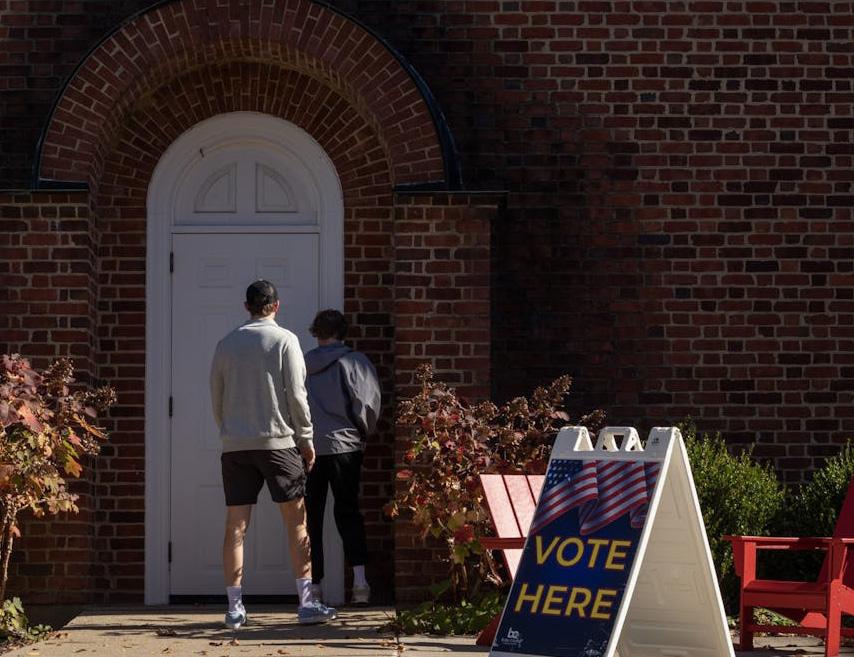

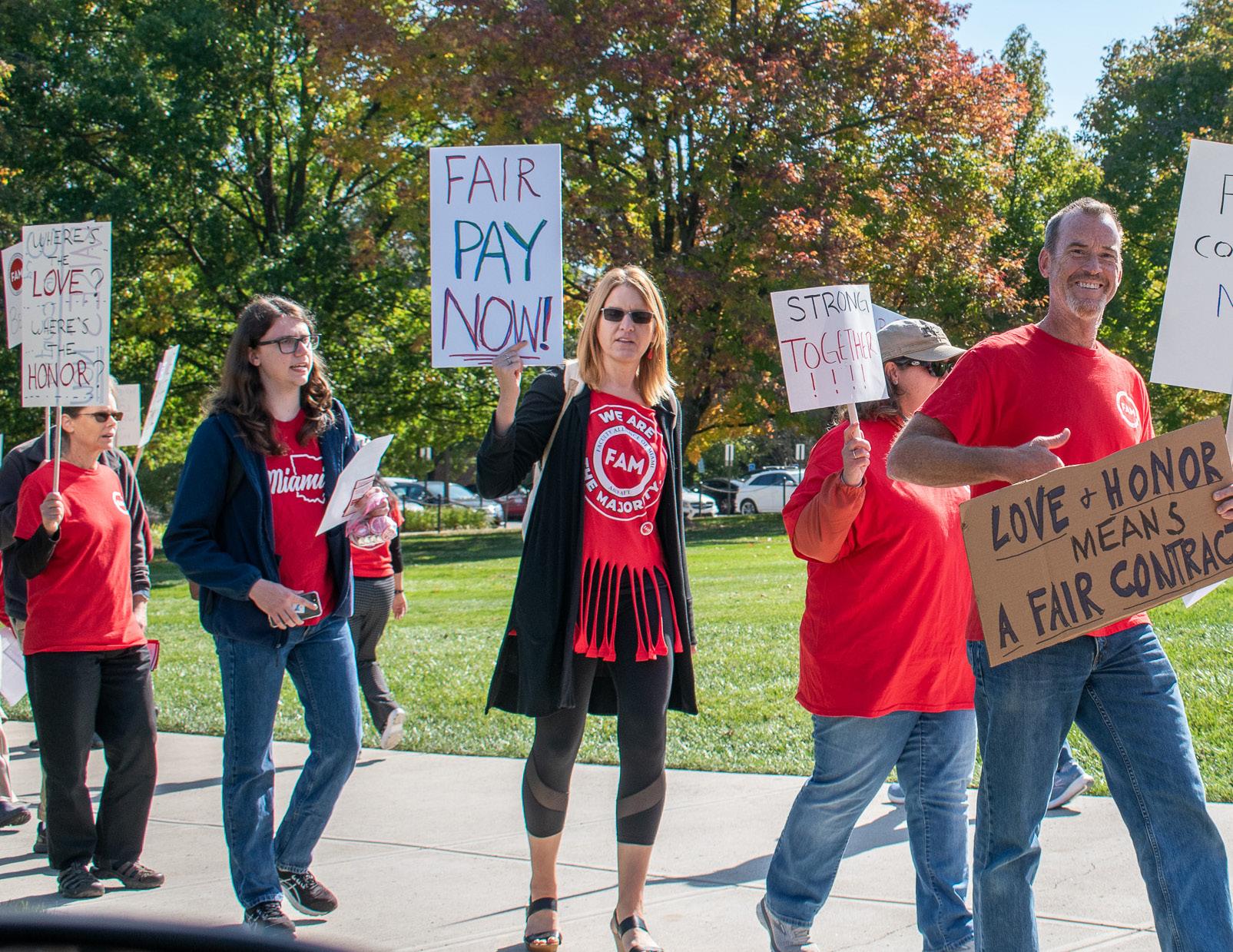
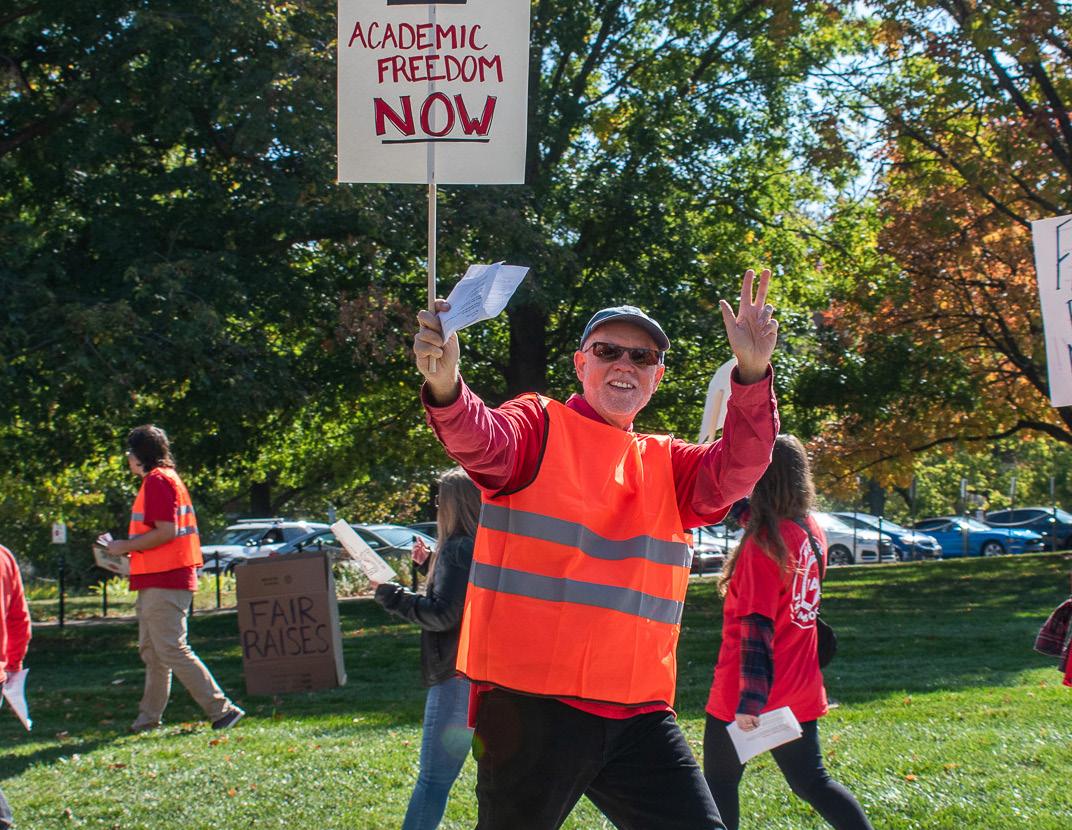
ASST. CAMPUS AND COMMUNITY EDITOR
For union members across the country, the upcoming election cycle presents the opportunity for change and challenges as it relates to union organization and structure.
In an email to The Miami Student, Sarah Kilpatrick, executive director of the Ohio Conference AAUP (American Association of the University Professors) laid out potential implications for Ohio unions.
“At the state level, there are very clearly pro-union and anti-union lawmakers,” Kilpatrick said. “One of the biggest reasons why Senate Bill 83 has not passed the legislature is because it is the most anti-union bill we’ve seen in over a decade.”
Senate Bill 83 (S.B. 83) is a controversial bill that aims to modify educational policies related to university classroom instruction and academic content. Cathy Wagner, FAM contract team co-chair and English professor at Miami University, also noted the potential implications of S.B. 83 for unions and labor.
“S.B. 83 is a bill that would be very harmful to academic unions,” Wagner said. “It would block collective bargaining rights in multiple ways. freedom.”
fessor of political science, emphasized the impact of S.B. 83 on the upcoming election and unions.
“If you look at S.B. 83, one of the few things that was removed was some of the language limiting col-
in the Ohio legislature that are more
union-friendly than others nationally.” Wagner also said Issue 1, an amendment aimed at combating gerrymandering by redrawing the boundaries of electoral districts, could play a key role for both FAM and unions more broadly.
“The other thing that is hugely important for FAM and for unions at large is that we pass Issue 1,” Wagner said. “If Issue 1 passes, then we can have fairer elections in Ohio … and take some of the extremism out of politics.”
On the national level, there are crucial appointments on the table.
Kilpatrick said at the federal level, whoever wins the presidency will be able to appoint members to the Nawhich makes decisions about unions. She added that President Joe Biden’s union, and believes Kamala Harris would follow that lead. On the other hand, another Trump presidency would lend itself to more anti-labor
cial aspect of this election will be the
“The current general counsel, Jennifer Abruzzo, has been much more said. “They’re able to shift how comaggressive approach to sanctioning rules over union drives. If Harris is elected, I would expect that to continue.”
Kilpatrick shared a similar sentiment about a potential Harris versus Trump administration, saying another Trump presidency would result in -
bers, while Harris would likely follow Biden’s lead.
all said they believe this is a crucial moment in time for unions across diversity of unions could lead to an overall political splinter.
“When we think of unions, I thinkly more diverse set of people than “We’re seeing that in divisions of labor … Some unions have more conservative membership and are shifting more on cultural issues. Whereas others are going to be the heart of the democratic party for the foreseeable future, we might see a splintering of unions in the next four to eight years.”
Wagner said while union support is increasing, overall density is still in decline.
“Even though 70% of the US population now says that they support unions, there is so much union busting that it’s hard to form one,” Wagner said.
Kilpatrick said while she doesn’t think that union issues were at the forefront of this election, Americans are still in support of labor.
“Every poll I’ve seen shows that a strong majority of Americans favor unions,” Kilpatrick said. “From my perspective, union issues have not been front and center in this election cycle. Nevertheless, union organizations have actively been supporting and promoting pro-worker candidates.”
reieram@miamioh.edu
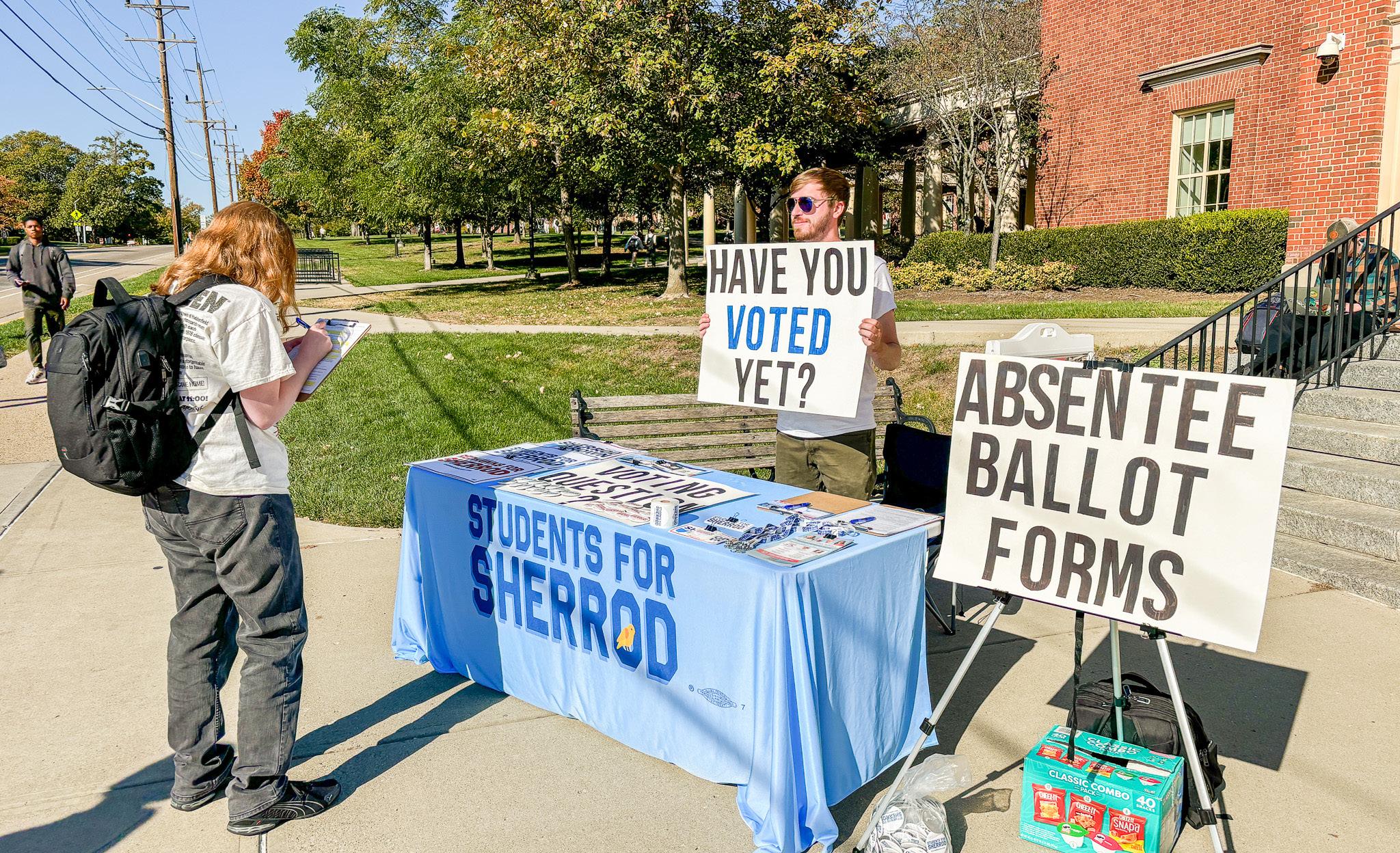
OLIVIA PATEL MANAGING EDITOR
With the November election rapidly approaching, Ohio residents have already begun receiving absentee ballots through the mail. The Butler County Board of Elections began sending ballots on Oct. 8, which can be returned anytime between now and 7:30 p.m. on election day.
How these ballots are returned is crucial to whether or not they can be counted in the election. With recent phone scams giving voters false information on how to return their ballots, information is becoming increasingly unclear to absentee voters.
The Butler County Board of Elections received a phone call on Thursday, Sept. 19 after hours from a confused voter, saying he and his wife received a phone call from an unknown caller, instructing them to return their ballot to the Butler County Democratic Headquarters in West Chester.
The problem is, that’s illegal.
Voters must return their ballots to the ballot box or inside the lobby of their county’s board of elections
if they are returning it on their own.
Eric Corbin, deputy director of the Butler County Board of Elections, said voters also have the option of mailing their ballot to the board of elections.
we’re supposed to do,” Corbin said.
“We also put a social media post out just to remind people, ‘Hey, only return your ballot to the board of elections, whether it’s through the mail, in person or in the drop box.’”
The Butler County Board of Elec-ocrats of the phone calls shortly after they happened. Kathy Wyenandt, party chair for the Butler County Democrats, said these phone calls targeted registered Democrats and implied they were coming from the Butler County Democrats, which they were not.
“It’s illegal for anyone other than the absentee voter or a member of his or her immediate family to touch an absentee ballot that doesn’t belong to them,” Wyenandt said. “Putting out false information like this phone scam is an attempt to suppress the
vote and cause absentee ballots to not be counted. We cannot and will not accept absentee ballots at the Demo-
The number used to spread this information was not traced back to any one person, and when the voter who reported this call attempted to call the number back, the receiver said the number had been discontinued. Corbin said he has seen Facebook posts with misleading information on them, including incorrect hours of early voting or the hours that the polls are going to be open. In response, Corbin said they have contacted sites like Facebook, Google and X, previously known as Twitter, to get these posts taken down. In Hamilton County, the board of elections faced a similar issue at the July 9 board meeting. Black Fork Strategies, an Ohio-based organization that focuses on voter engagement and registration amongst other initiatives, submitted potential false registration forms.
Black Fork conducted a voter registration drive over the summer, both in Hamilton County and throughout Ohio. Several of the registrations sub-
mitted to the board of elections were director of elections, said.
Two of the registration forms listed a change of address for two voters to the same business address as one of the voters. Upon opening the change acknowledgement sent out by the board of elections, the two votersing neither of them had submitted a change of address form.
registration forms submitted by Black Fork came from a stack of nearly 100 registration forms, which all the same handwriting. Poland held up these registration forms at the meeting, saying that further investigation would be needed for all of the questionable submitted forms.
Joseph Mallory, member of the Hamilton County Board of Elections, said during the meeting he heard about suspicious registration forms in other counties throughout Ohio and suggested the matter be taken to the Secretary of State’s Public Integri“This is fraud,” board member -
right fraudulent behavior … It’s plain and obvious to me that when you get this many registration cards with the very same handwriting, that someone is trying to defraud the elections process in Hamilton County.”
The board contacted Black Fork about these forms and received the contact information of the canvassers who submitted them.
In Butler County, absentee ballots must be postmarked by Monday, Nov. 4 and returned to the Board of 7:30 p.m. on Tuesday, Nov. 5 to be counted in the 2024 election.
Wyenandt said some things to note with returning absentee ballots are if voters are mailing them, they need two stamps. Absentee ballots also cannot be handled by anyone outside the immediate family.
“I think our system [in Butler
see an issue, it usually comes down to a voter’s confusion over listening to national media, regardless of whether it’s left or right media, and getting mixed up.”
patelou@miamioh.edu

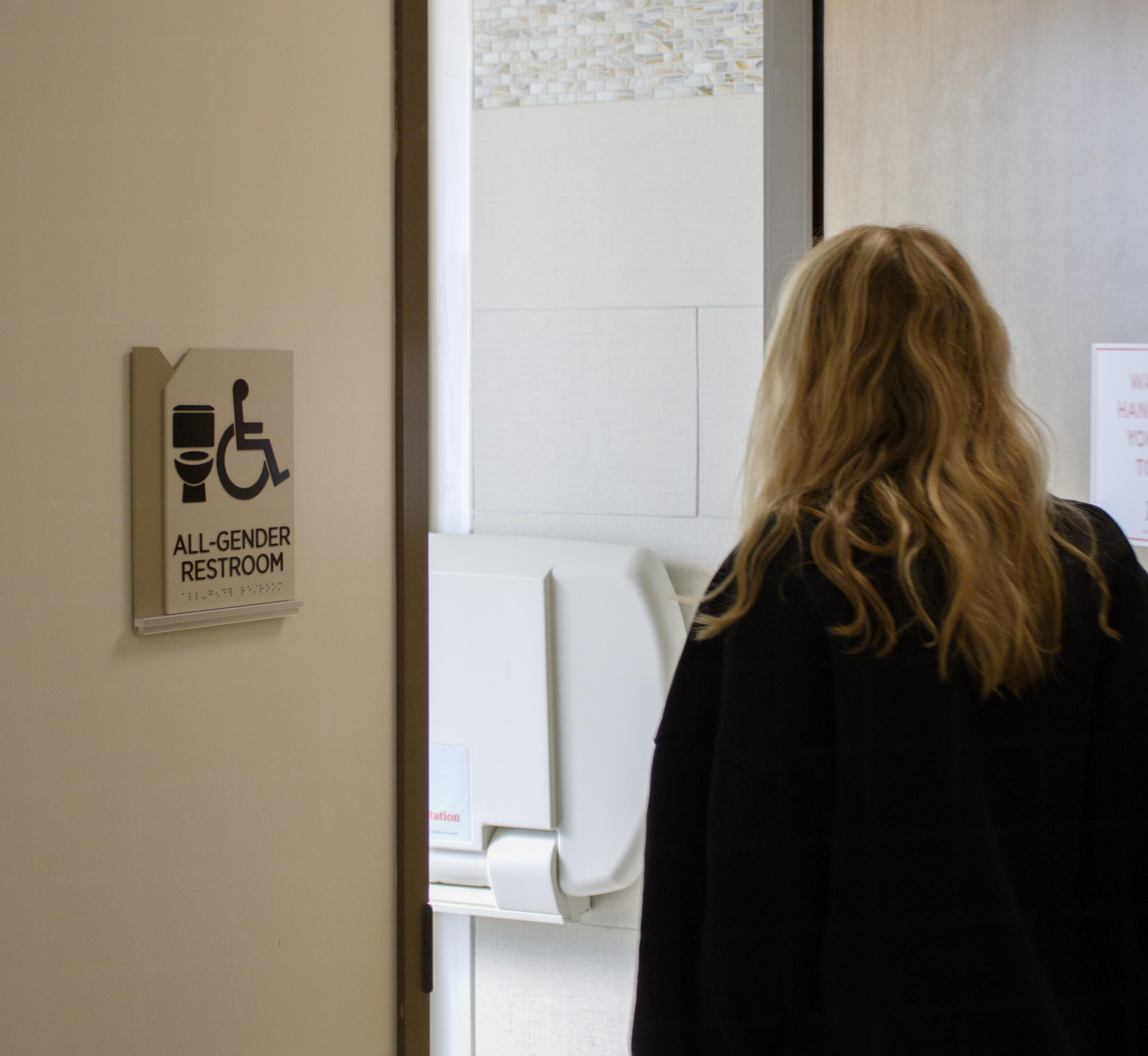
CHLOE MCKINNEY CAMPUS AND COMMUNITY EDITOR
SHANNON MAHONEY THE MIAMI STUDENT
A new amendment to an Ohio Senate bill may impact the ability of students and faculty to choose which restroom they use.
Before Ohio Senate Bill 104 (S.B. 104), a bill that would expand the college credit plus program, there was Ohio House Bill 183 (H.B. 183). If passed, it would have required students to use the bathroom of their sex assigned at birth. However, when the bill lost traction, it was added as an amendment to S.B. 104.
Felix K. is a transgender man and sophomore data analytics major at Miami University. Felix said he op-
poses the bill because he thinks it will create more problems rather than a solution to ongoing social issues.
“Trans individuals who then have to go into the biological bathroom … They’re just going to make those individuals uncomfortable,” Felix said.
“I know, some days I’ll walk into the women’s bathroom, and I make those girls so uncomfortable, and I can see it on their faces.”
Additionally, Felix worries attempts to enforce the new rule could inadvertently harm cisgender people.
He said he believes some cisgender people who don’t present that way may be accused of using the wrong restroom.
Chad Doran, president of Miami’s College Republicans, said he couldn’tganization’s stance on the bill. However, he personally supports it.
“It’s pertinent to schools, and I
think it’s becoming a bigger and bigger issue,” Doran said.
Doran added it’s common for controversial bills like H.B. 183 to be added as amendments to more bipartisan bills. He sees it as a strategy; just another part of politics.
“It’s just kind of a rule,” Doran said. “Politics is a dirty game and both sides try to bend the rules a bit. So, I think if one side can do it, why can’t the other?” Patrick Houlihan, president of the Ohio College Democrats and Miami College Democrats, described the amendment as a way to attack transgender people.
“It’s ridiculous to target people said.
Anne Whitesell, an assistant professor of political science, said she disagrees with the amendment and believes fear is a driving factor in
Miami Board of Trustees members contribute to campaigns across the Ohio, country ALL
KASEY TURMAN
EDITOR-IN-CHIEF
It’s not hard to know it’s an election year. Commercials about politicians are on seemingly every channel, candidates’ faces are plastered on billboards and your neighbor’s lawn might be peppered with signs with various names. But who pays for all of it? Election season is full of ad campaigns, yard signs and rallies, and none of it is free. The 2024 electionnal races totaling more than $10 billion in spending across the 468 seats up for election, while the presidential race alone has cost more than $5.5 billion.
various avenues including a candidate’s personal funds, political action committees (PACs) that collect campaign funds and individual contributions to a candidate. While no notable Miami University administrators donated to campaigns this election cycle, multiple donations have come from members of Miami’s Board of Trustees.
None of the members donated to a presidential campaign, but three do-
nated to multiple campaigns or PACs in Ohio and across the country. Deborah Feldman Board of Trustees Vice Chair Deborah Feldman donated a total of Feldman donated $2,000 to U.S. Senate candidate Sherrod Brown (Democrat).
Feldman also donated $500 to both Friends of Andrea White and Citizens to Elect Willis Blackshear Jr. White is a Republican seeking reelection as a member of Ohio’s House of Representatives. She holds the seat in the 36th district representing Kettering, Ohio. Blackshear Jr. is a Democrat who currently serves as a state representative in Ohio’s 38th district in Dayton, Ohio.
Zachary Haines Board of Trustees member Zachary Haines contributed to four individual campaigns and the Republican party.
Haines contributed $1,000 each to George Lang (Republican), Orlando Sonza (Republican) and the Republican Party of Ohio. Sonza is running in Ohio’s 1st congressional district in Cincinnati against Democrat Greg Landsman. Lang is seeking reelection in Butler County as an
Ohio representative, a position he has held since 2021.
Haines also contributed to Ohio’s U.S. Senate race with a $250 donation to Bernie Moreno (Republican).
Dinesh Paliwal
Dinesh Paliwal contributed the highest amount, with a total of $13,300. The sum was spread between two PACs and one candidate running for the Illinois House of Representatives.
Paliwal sent $5,000 to both the House Majority PAC, a Democratic super PAC that spends funds helping Democratic candidates get elected to the U.S. House of Representatives, and the American Investment Council which contributes to candidates who support the private equity industry.
Paliwal’s other contribution went to Raja Krishnamoorthi (Democrat) who is running for Illinois House of Representatives. Paliwal donated to the campaign from an address in Connecticut. turmankd@miamioh.edu
these types of amendments.
“This is a lot of fear-mongering … of being afraid of the unknown,” Whitesell said. “I do think it’s a bill that’s meant to score political points. It’s part of the larger culture war.” Doran said he also believes the topic has sparked more controversy recently.
“I guess society as a whole has become kind of hyper-focused on gender, and it’s become a big national political issue too, not just at the state level,” Doran said. Felix doesn’t know how Miami will act toward LGBTQ+ students if the bill is signed into law. He said he did not always feel cared for at Miami, citing harassment issues in the “Love. Honor. Pride.” Living Learning Community in Dorsey Hall last year.
“I don’t know how Miami will support queer individuals because they failed us at that aspect,” Felix said.
Doran said he believes Miami can protect its LGBTQ+ students if the bill becomes law as gender-neutral bathrooms would still be available. Despite Felix’s uncertainty about how the university might react, he is not overly concerned for the same reason.
“We’re still going to have gender-neutral bathrooms,” he said, “and so I’m not too scared.”
Houlihan said he expects Governor Mike DeWine to sign the bill into law. However, he is still committed to ensuring people’s voices are heard.
“It’s important to hold your representatives accountable,” Houlihan letters. It matters.”
mahones5@miamioh.edu
mckinn15@miamioh.edu


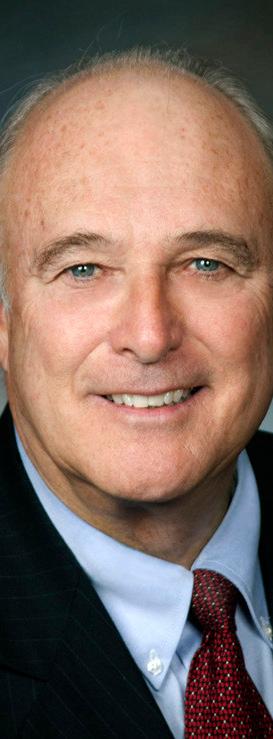
With less than two weeks left before the Nov. 5 election, voters can expect to see three Miami University alumni on the ballot running forbents Michael Gmoser, Nancy Nix and Gregory Wilkens are looking to be reelected as county prosecutor, auditor and engineer, respectively.
Michael Gmoser
Michael Gmoser ’68 is running for in the upcoming Nov. 5 election.
After Gmoser graduated from Miami, he attended law school at Northern Kentucky University. However, Gmoser credited much of his success in law school to the analytical reading and curriculum during his years at Miami. During law school, the presiding
rience watching other lawyers and sitting in on cases. He said this laid the groundwork for what he needed to eventually pass the bar exam and begin his legal work.
Gmoser had the opportunity to return to his home state of Illinois because of the connections he made and the possible career opportunities open to him.
Gmoser served as chief trial coun-cuting attorney for eight years before
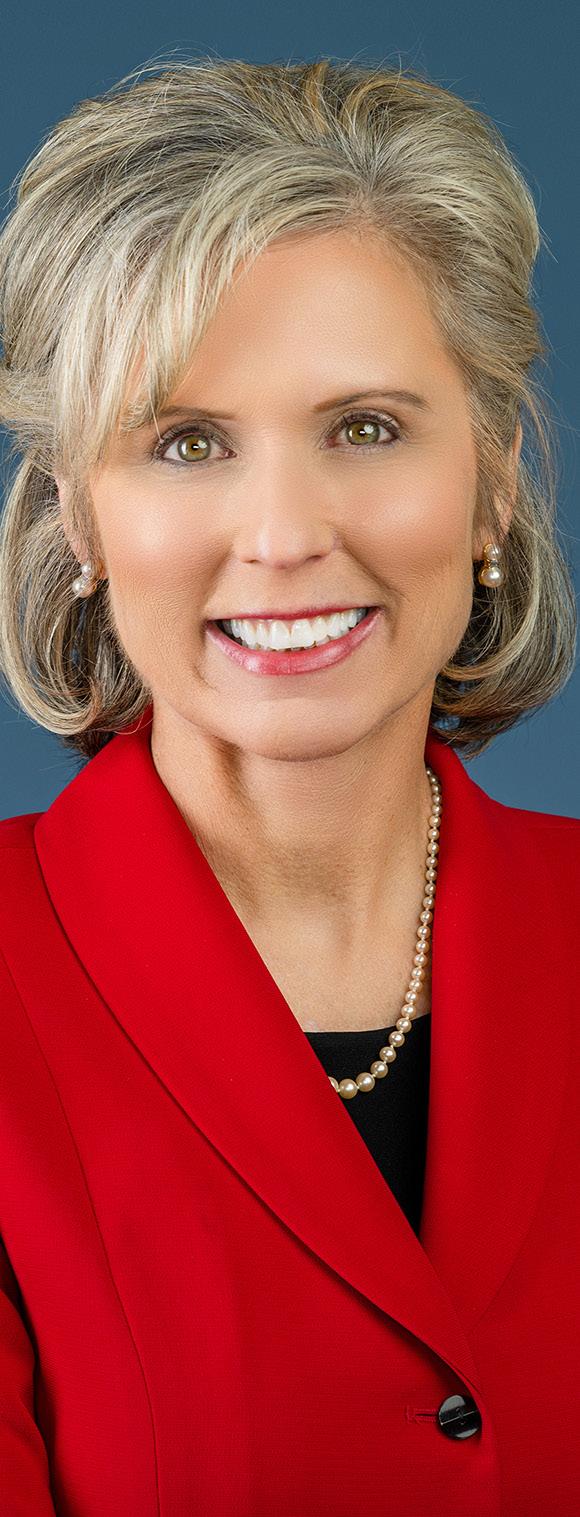
spending time as a private practice when the prosecutor resigned and has been reelected three times since, position.
He said he decided to run for reelection to continue helping and sup-
“You have an opportunity to exerin people’s lives every day,” Gmoser said.
introduced a diversion program that impacts the student population of crimes. He said it allows students to avoid having a criminal record that may impact the future of their careers.
Other policies focus on crimes against the elderly and ensuring that police brutality incidents are tried by
Gmoser said his main priority is providing justice to the citizens of always mean winning cases. He also emphasized the importance of having a nonpartisan publication to inform the student community.
es comes second,” Gmoser said. “I’m the prosecutor for everybody in the county, whether you’re a Democrat, Republican, Independent or nothing.”
Nancy Nix
Nancy Nix earned a master’s degree in business administration
Nix said she believes that earning her degree in business administration from Miami has served her well in her role as auditor.
“We had to take a class on human resources and that was extremely hard, very legal and a lot of that parlays into my current job,” Nix said. “I think it just makes you a more well-rounded individual. Anytime you’re enhancing your education, it’s very important. It always helps to Nix grew up in Missouri but fourth-degree felony and barred him term. Nix was then made the interim
conviction, according to reporting and to prevent her name from being on the ballot in November. Later, the
olds isn’t entitled to be placed back in Ohio.


Nix said the whole experience in-
“As far as being auditor, I think our mantra is ‘outreach, transparency and honesty,’” Nix said. “That won’t change.”
In her role as auditor, Nix wantsty taxpayers and their concerns andable.
“Our loyalty is with the taxpayers, so we will always advocate to keep the investing in new technology,” Nix said. “We do all our own appraisal here in the county, so we’re always looking at new tools to have the most accurate appraisal of all the real estate because that’s our job.” Gregory Wilkens
Gregory Wilkens graduated fromufacturing engineering.
Wilkens credits the public speaking and problem-solving skills he learned and the people he met at Miami in helping him reach his goals.
Wilkens is up for reelection for made many contributions to the Mi-
“I found a dedication to citizens in this county,” Wilkens said. “In reference to safety in particular, and to the employees and the people that were here.”
ty since he was 5 years old and said it’s his roots. He worked as executiveportation Improvement District be-
fore becoming the county engineer and discovering that he wanted to increase the engineer’s level of impact. with projects ranging from building -
ing a new Liberty Way interchange.
Wilkens said he still has plans to build a Millikan Road interchange and a North Hamilton crossing, both of which are major road projects. “Economic development and safety are the two main goals that I’d like said. “It’s engineering based on sound decisions.”
His safety goals have been accom-terchanges, roundabouts and a relook and these have had a major impact on safety,” Wilkens said. “We’ve had ain accidents.” Wilkens plans to continue his improvements on consumer road development and other county projects to ensure economic development and
milnerm2@miamioh.edu fahymm@miamioh.edu

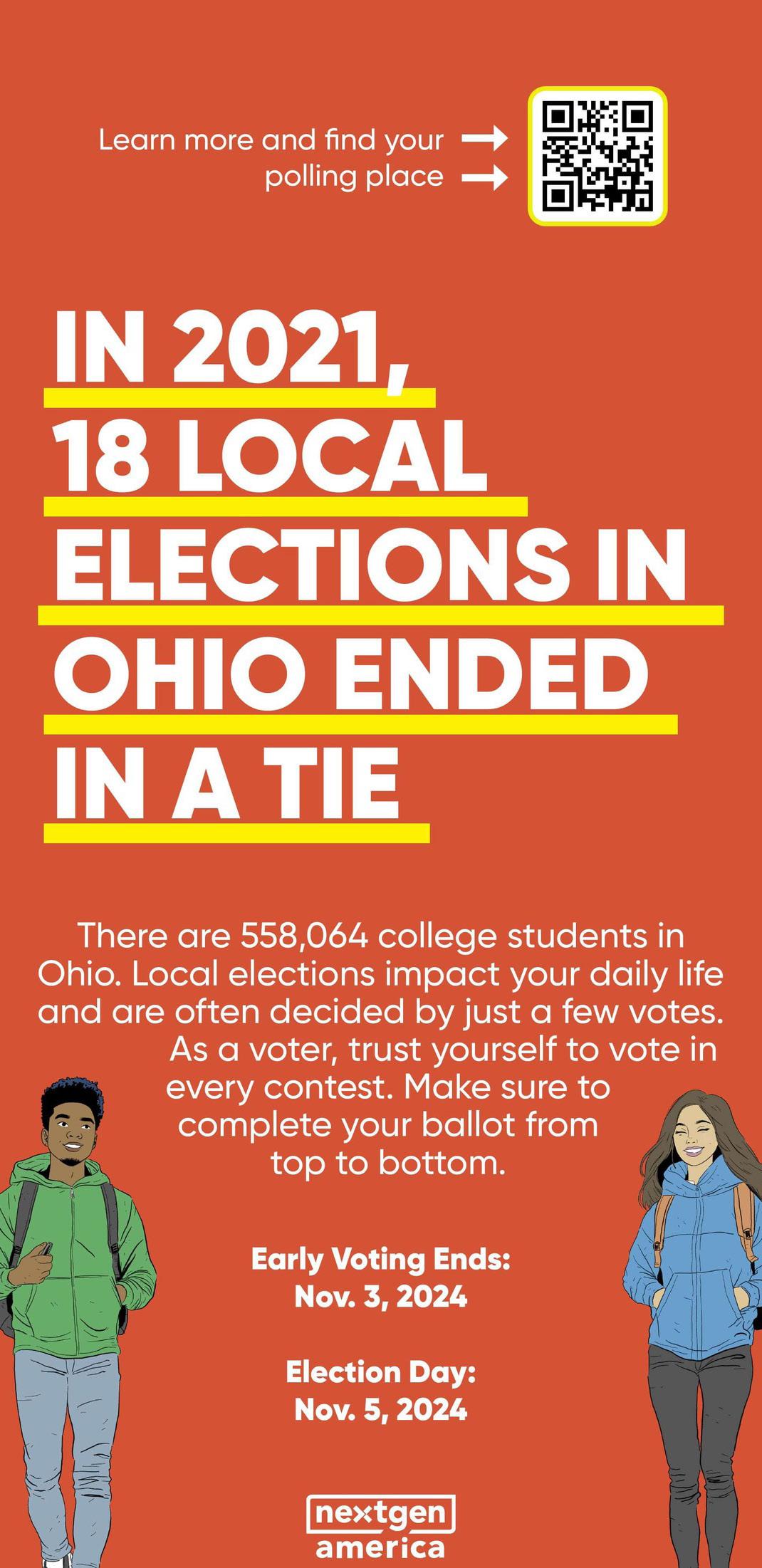


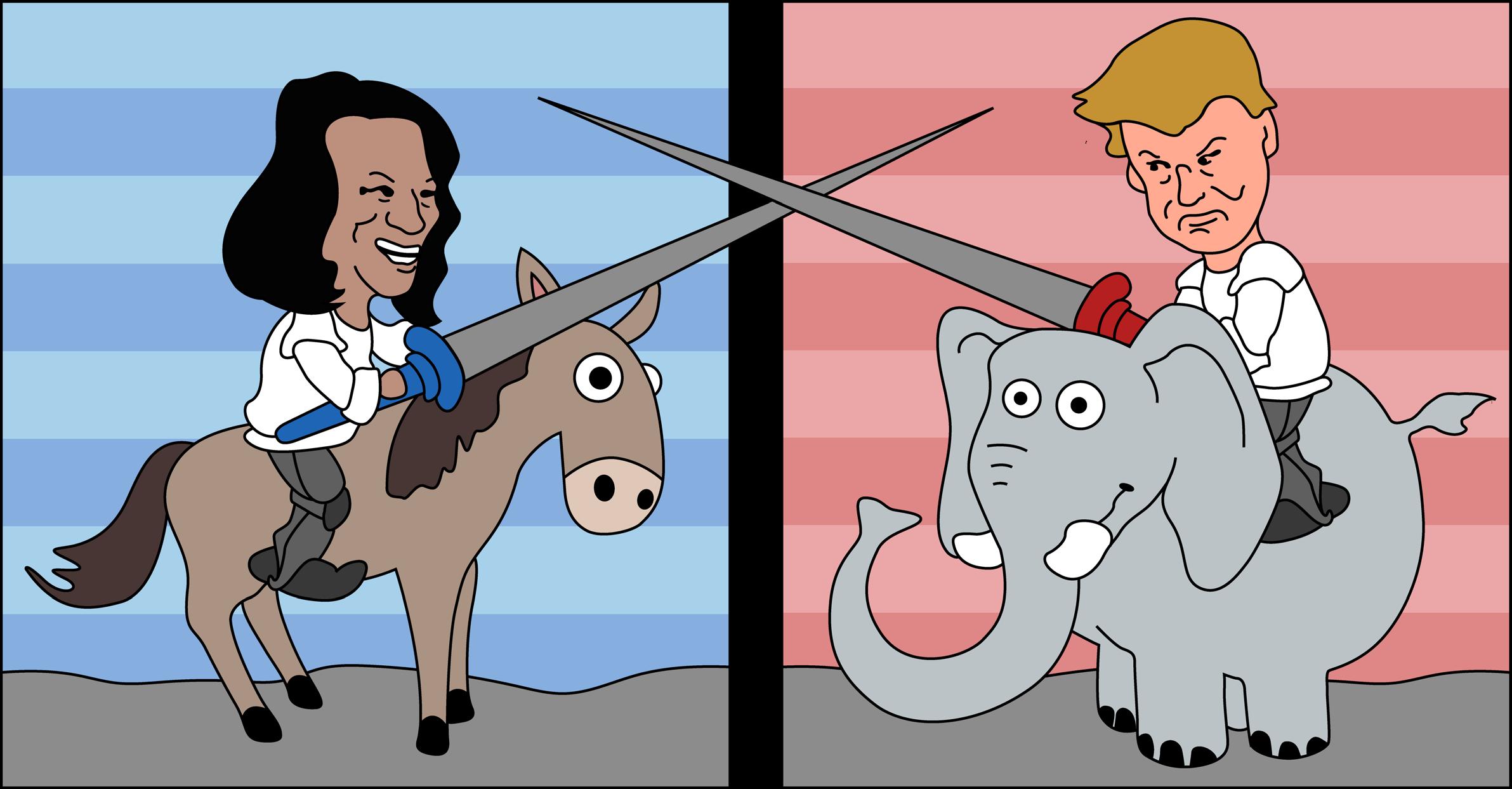
PATRICK HOULIHAN, CONTRIBUTING WRITER
When we head to the ballot box this year, we will be faced with a choice between a career public servant who wants to bring the country forward and a 34-time convicted felon who only cares about himself and his rich friends. We must elect Vice President Kamala Harris and Governor Tim Walz as the next president and vice president of the United States.
Harris entered public service in California, becoming a district attorney, the state attorney general and then the state senator. She ran for president in 2020 and subsequently became President Joe Biden’s pick for vice president.
Walz began his career at 17 when he enlisted in the Army National Guard. Under the GI Bill, he served his community by becoming a school teacher and football coach. He servedman until he became governor of the state. He delivered historic wins for the people of Minnesota by capping insulin at $35 a month and providing free school lunches to the children of the state.
Abortion and voting rights
Harris has pledged to protect the right to an abortion, keeping the gov-
In Ohio, 57% of voters approved a constitutional amendment to protect abortion rights after Trump-appointed conservative judges overturned Roe v. Wade. Harris has pledged to protect that right by urging Congress to codify the protections of Roe v. Wade nationally.
It is also important that Harris supports our right to vote and make our voices heard. By falsely claiming fraudulent elections and attempting a coup on Jan. 6, 2021, Trump cannot be trusted to support the will of the people or the integrity of our institutions. The American Civil Liberties Union endorses Harris’ record on voting rights and lauds her support of legislation like the John Lewis Voting Rights Act. Harris can be trusted in the executive branch.
Economy
Democratic presidents do better on the economy. A paper by economists Alan Blinder and Mark Watson claims that Democrats do better under almost every statistic including job creation, economic growth and more. Harris will continue this trend and build an economy to support the middle and lower classes, rather than the rich. Harris will not raise taxes on the middle or lower classes. Anyone who
LILLY APPELFELLER THE MIAMI STUDENT
Less than two weeks to Election Day; I’m still not planning to vote.
There’s a chance I’ll do it just to get it over with, because that’s what it feels like to have the right to vote. I have the right so I might as well do it, even though I don’t feel committed to either candidate or party.
Every headline is about how crucial this election is. Everybody is talking about how important it is to participate in the democratic process and how each person’s vote can tip the scales for who ends up sitting in
However, “the most critical election ever” rhetoric is said about every election regardless of who is running or what the pressing issues of the day are. For me, this argument doesn’t matter much.
Then there’s the debacle of the issues salient to me versus what the candidates are actually running on.
Securing the border isn’t an issue that concerns me as much. The rhetoric of “ every state suddenly being a
makes less than $400,000 a year will not see increases. She wants to make it easier to buy a home, get rid of junk fees, expand the child tax credit and do much more to ensure that people have a good foundation under their of the success of the Biden-Harris administration that stopped the bleeding economy that Trump left, Harris will do well for any student who is worried about their economic future.
Why should you care as a student?
The Biden-Harris administration wants students to succeed. They proposed the largest student debt cancellation plan in history, which a conservative Trump-appointed court struck down once again. This plan would have allowed recent graduates who need it most to have a breather and start their careers on the right foot.
Furthermore, Harris can blaze a path to a new era of politics. With how much division and hatred is spewed from the Republican party, politics has become annoying and even dangerous to discuss within a family, friend groups and especially on social media. If we put a rational to improve the lives of everyday Americans, we can start to heal as a nation. I cannot imagine the damage another four years of a Trump presidency would do to our country. I get exhausted thinking about the news cycle alone.
I did not hit on all or even most of Harris’ important policy positions, so make sure you go to her website to read them for yourself. But, if you want to see a new era of normal politics, where we can discuss issues on merit instead of being fueled by hatred, vote for Harris-Walz. If you wish to see this country move forward and support our futures as eventual college graduates, vote blue up and down the ballot.
WRITER
With only a few weeks until the 2024 presidential election, voters must consider which candidate will lead America back to prosperity, security and unity. After three and a half years of inept leadership from current President Joe Biden and Vice President Kamala Harris, including economic challenges, rising crime and unchecked immigration, former President Donald Trump stands as the only candidate capable of restoring this nation to greatness. His track record as president demonstrates that he is ready and eager to quickly rebuild our struggling economy, secure the open border and restore strength at home and abroad. to make money, pay for groceries, gas enough. Even after college, there remains a looming question of how I’m house with surging year-over-yearministration, interest rates on 30year mortgages have peaked since November of 2000. Under the failed Biden-Harris eroding the savings of everyday Americans and increasing the cost of basic goods. Gas prices have soared, and families are struggling to make ends meet.
In contrast, Trump presided over one of the strongest economies in our recent history. Before the pandemic, unemployment reached historic
minority communities. Wages were year over year compared to President Biden’s 3.4%. Trump’s economic policies included major tax cuts for all Americans and mass deregulation for businesses, unleashing innovasmall businesses and large corporations alike. Trump’s focus on American manufacturing and trade deals that put on China, while controversial, were part of a larger strategy to ensure that American workers were not being undercut by foreign competition. The Biden-Harris administration bringing jobs back and as a way of generating revenue. A second Trump term promises a return to those pro-growth policies that prioritize American workers and families over bureaucratic red tape and globalist trade deals that have left so many behind. The most glaring failure of the Biden-Harris administration has been the absolute disaster that is the current state of the American southern border. The U.S. Border Patrol has reported over 10 million encounters with illegal aliens, many of whom have been “caught and released” intoure does not include an estimated nearly 2 million “getaways” that have evaded detection and crossed into the U.S., overwhelming local communities and stretching resources
thin. According to the U.S. Border Patrol Council, there are 49,900 average monthly getaways and 3.5 million total asylum-seeking migrants that have been released into the U.S.istration has failed to deliver on its promise of dealing with the border crisis and cut immigration enforceTrump administration. Voters are feeling the impact. Kamala Harris, given the role of “leading” on the border crisis, has failed the American people.
On the other hand, Trump’s borsecure the border, enforce immigration laws and empower border patrol to do their job. Trump instituted his “Remain in Mexico” policy, requiring those seeking asylum to stay over the border until their court date. Under Trump, border security was prioritized, ensuring that immigration to the U.S. was legal, orderly and benis clear. Trump will restore law and order to our southern border.
In the past few years, we’ve seen a lack of decisive leadership. Harris has repeatedly claimed that she was the “last one in the room” during the botched withdrawal from Afghanistan that killed 13 American servicemen. This foreign policy disaster revealed our weak and incompetent leadership to the world, ultimately leading to the invasion of Ukraine. On the contrary, Trump’s tough stance on our adversaries, decisive actions and his show of peace through strength made him the only president in over 42 years with noue with the disastrous leadership and incompetence of the past few years or choose a leader who has proven he can deliver economic prosperity, secure our borders and restore peace. Trump is that leader. Voting for him is a vote to restore American exceptionalism, and make America great again.
border state” doesn’t persuade me, even though I understand that there are reasons why voters should be concerned about immigration. Either fence or not, and the states are too far away for me to really care about (I’m still hoping that if they say border security enough times, it will somehow get rid of student loan debt. A girl can dream, right?).
Another issue is a woman’s right to her body and protecting her ability to receive health care. As someone is important, but the presentation is convoluted. The issue of a woman’s right to her body is a part of health care. Why are we not considering overhauling the entire health care system so that people have the option of any medical treatments they want rather than just selecting one issue to focus on?
There are mentions of expanding existing medical care programs such as Medicare and Medicaid. To me, that’s not the same as the creation of a health care system in which all people, regardless of their demographics,

can receive the quality care they need at a reasonable price. There are other issues too. The cost of living is increasing alongside consumer debt and student loans – all topics I care about. Yet, it’s the same as the other issues I’ve mentioned. I don’t agree with how the politicians want to deal with them, or I agree with some of what the Republicans propose and some of what the Democrats propose. Yet I agree with neither of them entirely. Even if I did agree with most of what one party has planned, I don’t would get done. From the elections I’ve been eligible to vote in I think much of what candidates run on gets sidelined when they actually get to the White House, and the administration just makes policy changes to address the issues of the day.
Yes - that is what should happen vote actually counts for something other than going through the motions of exercising my right. Perhaps I’ll change my mind at the last second and decide to cast a vote. Then I’ll be voting for the candidate who kinda-sorta ticks enough of the boxes to get my support, but I know much of it won’t happen in the long run anyway. All of that, plus whoever’s political ads aren’t annoying me anytime I try to watch a football game or a YouTube video, will probably get my vote. At least I’ll get a sticker out of it.

JAMIE GOWANS, THE MIAMI STUDENT
I registered to vote at the beginning of October with no idea of who I would vote for or how I would even cast my ballot from campus. The stands for are too far apart for me to feel comfortable making one single decision.
the opportunity to vote in. With the choices being as single-minded as they are, I have no idea where to even begin the process of determining who deserves my support.
On one hand, I could vote for a right-leaning former president who is now a convicted felon and has been grade. On the other hand, I could vote for a left-leaning seasoned politician who is also our current vice president.
Growing up, I was constantly told that all politicians were liars and untrustworthy. Moving out allowed me to form my own opinions on controversial topics and politicians. My family aligns politically on one side, while my friends and social media allowed me to see other political perspectives.
My household was fairly conservative and religious, therefore, I wasspectives. Some of those ideals have stayed with me as I started to form my own opinions, but I have also branched out toward more liberal viewpoints.
My main reason for remaining undecided is my opinions on some major controversial topics: abortion, gun violence and immigration are not accurately represented by either party, which makes me weary of each side. My stance is very moderate, and both candidates lean too far on their respective sides for me to agree with either.
It is important to remember that the United States was built on the principle of separation of church and state. The majority of people against abortion are basing their opinions on their religion. The government should not be able to enforce religious concepts on us when we supposedly have freedom of religion.
My view on abortion is not represented because I believe abortion should be a personal choice made between the woman and her doctor. However, the environment I grew abortion. While I disagree with some abortion cases, I do not think the government should have an input in
what women choose to do with their reproductive health.
Similarly, immigration has been a part of political discussions for the entirety of my life. I think our borders need to be regulated, but not as strictly as former President Donald Trump wishes and not as loosely as the Democratic Party stands for.
America claims to be the biggest and best country, with freedom and opportunities available for all. If new people are not let into our country, how can we claim to be proud of our
everyone and anyone into our country, we would be risking our safety. It is a dilemma I do not believe either party has properly addressed.
Another safety issue is gun vineeds to be addressed in our country. go about regulating the problem. We should have stricter gun laws, but not lose the right to own them all together. I agree that we need to lessen the frequency of shootings in America, but I also believe that we should have the ability to protect ourselves if needed.
have to make, the process of voting with an absentee ballot requires me to make my decision a earlier than normal for the ballot to arrive at my Thankfully, I have applied for an absentee ballot to be mailed to campus rather than the address I am registered to vote with, which will make the voting process easier while I am at school. Despite being undecided, I am still going to vote because I want the decision I eventually make to count election. No matter who I end up deciding, I want my voice to be heard. gowansj@miamioh.edu
Jamie Gowans is a
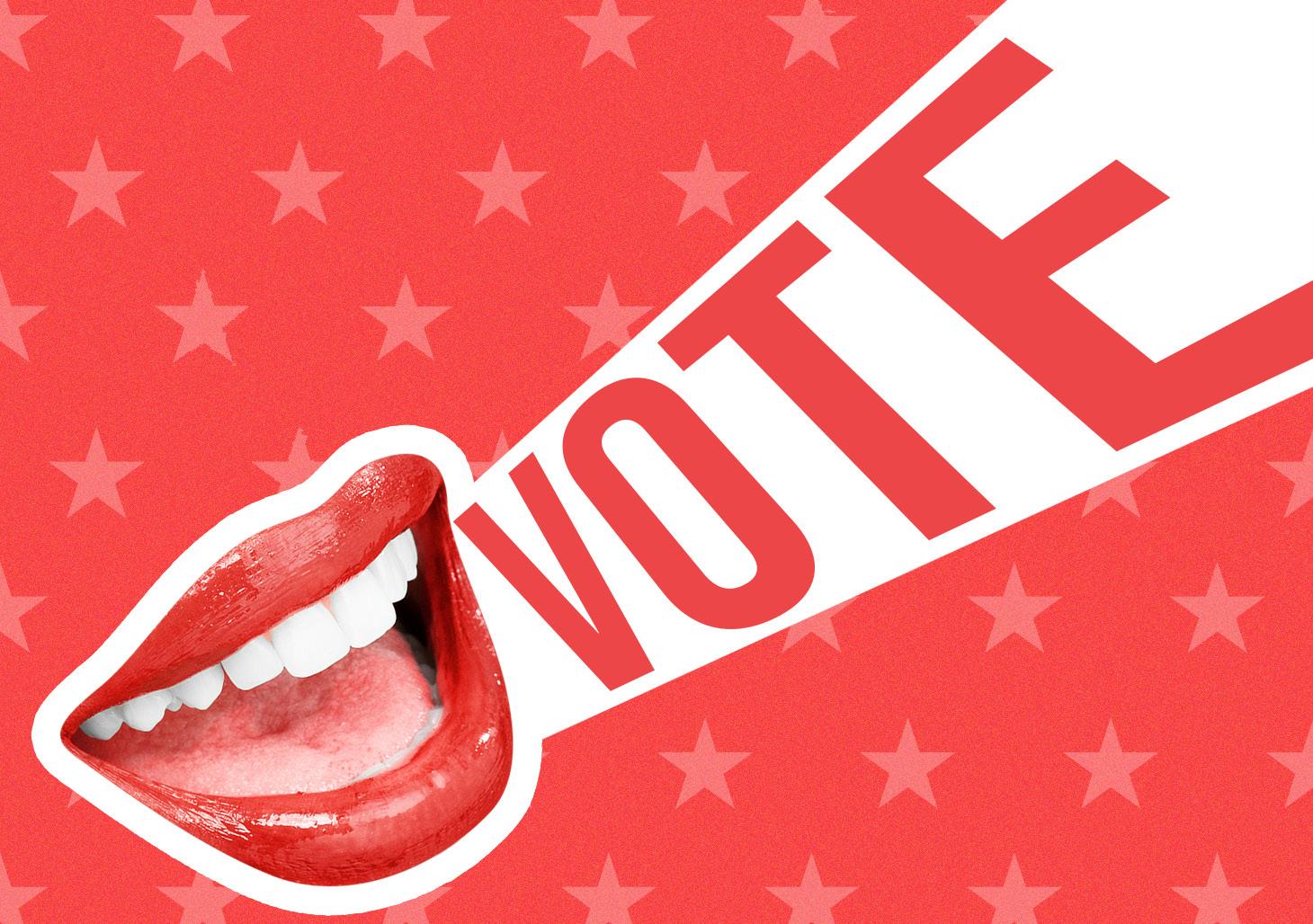
With likely the biggest election of our lifetimes less than two weeks away, the decision of who will be our as well as a plethora of state and local candidates. If you are only engaging in this election because of the presidential race, or are considering not voting at all, we as an editorial board implore you one more time: Go vote.
But before you head to the polls or cast your mail-in ballot, make sure you are well-informed on the impactful decisions you will make. Our generation has been called “stupid” and “uninformed” by actual politicalence our decision by an X (formerly known as Twitter) post or a snappy ad.
Nov. 5 mean a lot more than that. For the state and local elections, it is important to show up for important issues close to home. Many voters tend to forget that certain impactful issues are more governed by state and local politics than the national government, making local races just as important as the highly-anticipated presidential race. While we hope this election edition will guide you in making your own well-informed, independent decision on who to vote for, it should only be a small addition to your knowledge.
In this day and age, our thoughts are constantly being diluted by different news and media organizationsber, we are considered the most in-tion – try not to let biased content tip your opinions on issues. We are all well-educated college students, your best option is to open your computers and research the candidates and issues yourself.
However, it would be impractical, and incorrect, to demonize all news organizations for trying to sway your vote. In these coming days before the election, your local news outlets will be the sources with the least amount words, they are unlikely to have a political agenda in their reporting.
If you prefer larger news organizations for information on the presidential race, we recommend acclaimed neutral sites, such as the Associated Press or National Public Radio, or using a media bias chart.
Once you have an informed decision on who you are voting for, be certain that you are correctly casting your ballot. In Ohio, for absentee and mail-in ballots, they must be County (or your own county) Board is acceptable to send your ballot. Ballots will be received until 7:30 p.m. on election day, but if you are mail-tee ballots must be postmarked by Monday, Nov. 4, and any and all late
ballots will not be counted. Rules for voting absentee or mailin
MANAGING EDITOR
NITY EDITOR
KETHAN BABU SPORTS EDITOR
SAM NORTON
OPINION EDITOR
CHLOE SOUTHARD
HUMOR EDITOR
SAM NORTON
DESIGN
SARAH FROSCH
DIGITAL MEDIA EDITOR
JESSICA MONAHAN PHOTO EDITOR
STELLA POWERS ANNA REIER AUSTIN SMITH TY EDITORS
STELLA POWERS
ASST. SPORTS EDITOR
ASST. OPINION EDITOR
ADAM SMITH
FRED REEDER JR.
SACHA BELLMAN
AIM MEDIA MIDWEST PRINTER

2023 and 2024 Corbin Gwaltney Award Best AllAround Student Newspaper in the large school category
2023 Ohio Society of Professional Journalists (SPJ) Best Journalism Contest — First Place in the Best College Newspaper category
2024 Ohio Society of Professional Journalists (SPJ) Best Journalism Contest — Second Place in the Best College Newspaper category
2024 Ohio News Media Association Awards – First Place in Collegiate Opinion Writing
2024 Ohio News Media Association Awards – First Place in Collegiate Sports Coverage in the large
